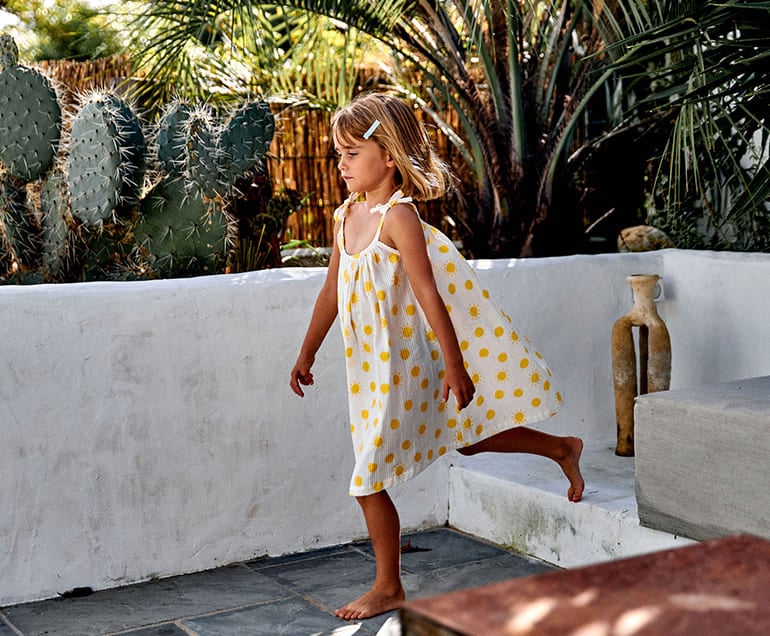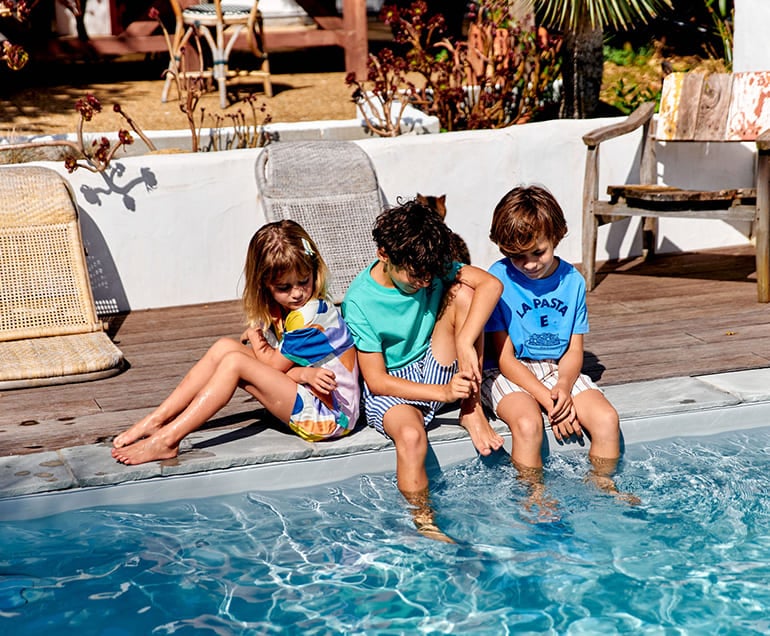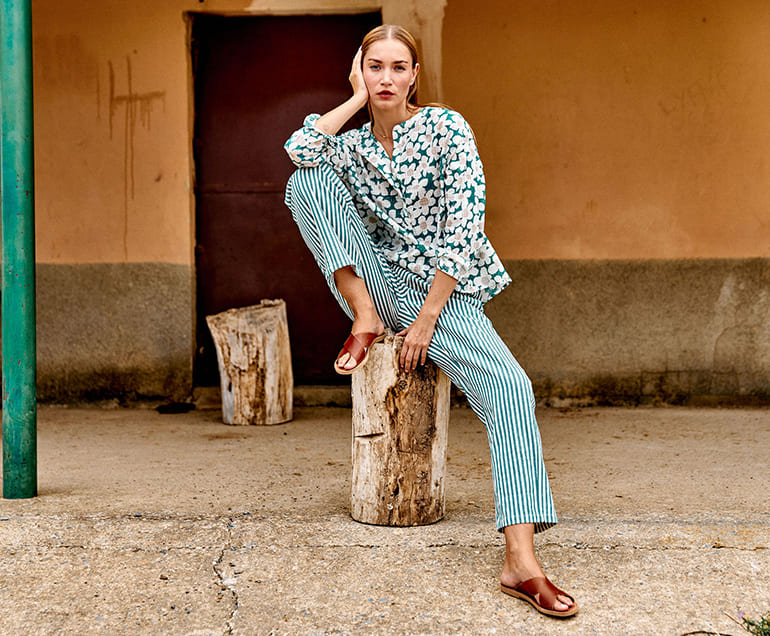OUR COMMITMENTS

To start
AN AWARENESS TO ECO-CONSCIENCE
If the textile industry is the second most polluting industry in the world, it is because clothes have become disposable, and because the way in which they were made has been neglected for a long time. Arsene is a small business, far from being perfect, but it is committed to do whatever it is to be better. Even at our small size we can make big changes: making clothes that could last and that can be passed through several children’s lives, crafting them by respecting the environment and the workers, and by seeking better ways to improve.
More sustainable clothing
Eco-responsible materials.
For our cotton garments, we turn to organically grown cotton, because it guarantees crops that protect not only the soil, but also the health of the growers and, more broadly, all those involved in the chain.
In 2024, 100% of our T-shirts and fleece garments (sweatshirts, joggers, fleece dresses) will be made from organic cotton. In total, 60% of production for the spring/summer 2024 season is in organic cotton.
1 in 4 pieces in the collection is even GOTS-certified. The Global Organic Textile Standard label guarantees that, from the cotton field to the finished product, the production process is ecologically virtuous, and that those involved in the chain are well treated.
What's more, each season we explore new, more virtuous materials : linen, hemp, recycled cotton and eco-responsible viscose.

Time to bring production closer to home
ALWAYS RESPECTING THE KNOW-HOW
The majority of our production is made in the region of Porto, in Portugal. T-shirts, sweaters, fleece garments and swimsuits are crafted there. However, two other countries collaborate with us. In India, our partners have a true expertise in print patterns and embroidery techniques, while in Morocco, our most important trouser producer has enabled us to achieve a high manufacturing quality.
Our commitment: to craft our products as close as possible, and to keep outside Europe only the real know-how techniques of other countries. To achieve this, we have set ourselves an objective: a minimum of 75% of manufacturing in Portugal by 2027. Each year we will publish the percentage of manufacturing per country. In 2024, 70% of our production come from Portugal, 1/4 from India and 4% from Morocco.

The quality
CRAFTED TO LAST
We have chosen quality and fair remuneration for our partners. A quality that you can feel by the touch of the materials we use, the small and discreet details that we add to our clothes, but also to the way they last in time. We firmly believe that a garment should be able to pass through several children’s lives, or simply remain in yours for a long time. For us, that is sustainable development.
And also
PACKAGING AND BAGS
Rethinking our way of doing things also means thinking about what happens around our clothes. Like our packaging, for example. A real challenge: once manufactured, our pieces are packed in individual "polybags" to protect them from dirt and make them easier to handle. While waiting to find truly ecological packaging, we have implemented concrete actions, by replacing individual polybags with pre-packs for our shops made of scraps of fabric or ribbon. This has enabled us to reduce our overall packaging by 17%.
We have also thought about our bags, so we replaced our conventional cotton tote bags with GOTS certified organic cotton bags, and we replaced our small cloth bags with recycled paper bags, too.

And also
EXTEND THE LIFE OF GARMENTS
Trousers shouldn’t be put aside at the first hole in the knee and sweaters shouldn’t be thrown away because they have been worn for ages. For this reason, we have created iron-on patches and they are available in our shops. With every patch we sell, 1 euro is donated to the Water Family association, which raises awareness of ecology and the responsible use of water among children and adults.